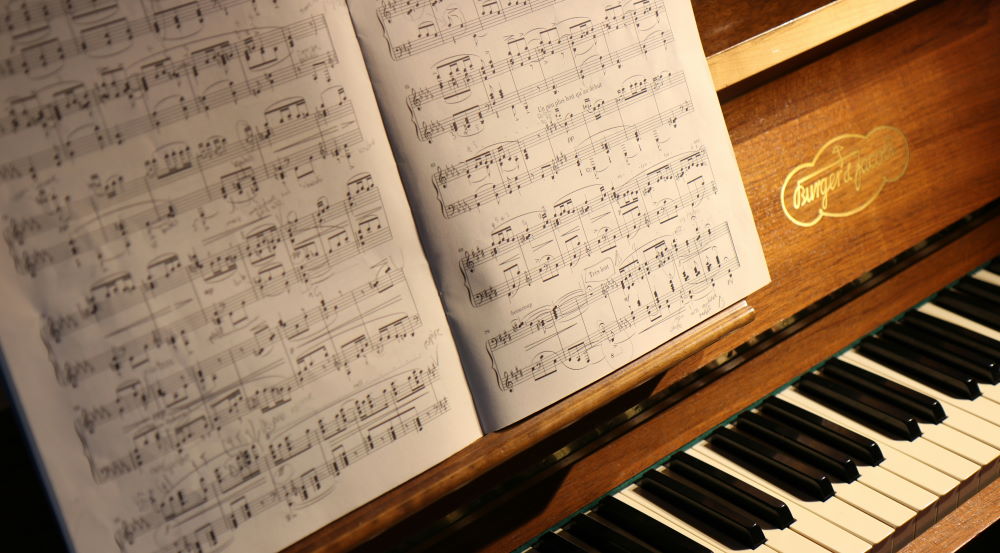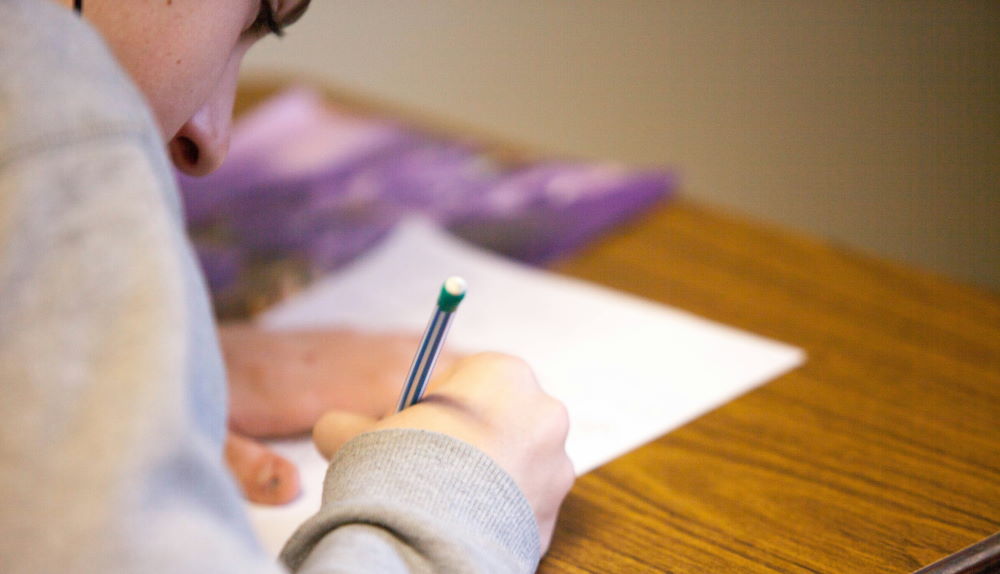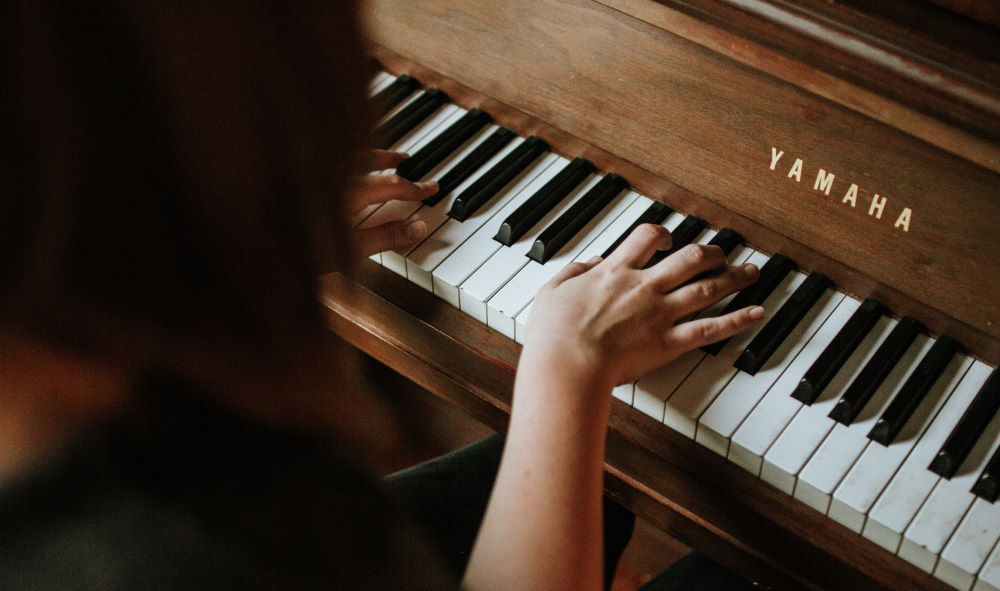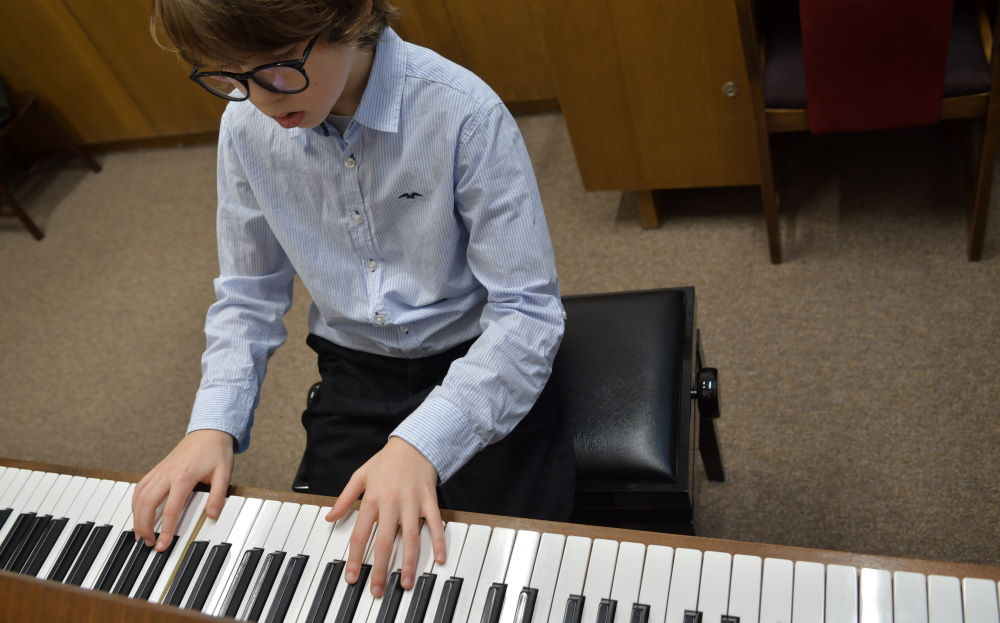Piano Exams: Everything You Need to Know
At some point along the way in your journey of learning to play the piano, you may decide to test your skills with examinations. If you choose to do so, the Royal Conservatory of Music (RCM) is the place to do so, which offers a comprehensive system of music study and assessment at every skill level.
In this article, we’ll break down everything you need to know about piano exams, including the benefit of taking them, the RCM Certificate Program, preparing for an exam and more.
Why Take Piano Exams?

Piano exams are a great idea for musicians who would like to be evaluated. To start, exams provide a national standard for students to track their progress. The programs are flexible, meaning students can collaborate with their family and instructor to set goals that work for them, all while meeting the rigor and discipline provided by the national standard.
On top of that, if you’re looking to develop well-rounded musical training for the piano, exams are the way to go. Piano exams are far more than just a test. To pass the exam, you’ll be required to study and perform pieces, scales, chords, sight reading, ear tests and other technical elements. And when you advance to higher levels, there are theory exams that are available to take your knowledge beyond just the keys.
Another great reason to enroll in piano exams is the effect they’ll have on your learning process. With times, dates and requirements attached to your learning, you’ll be motivated to learn and constantly push yourself forward. This goal-setting helps keep students accountable while encouraging advancement at every level.
As an added bonus, piano students will also receive awards and other benefits from their musical education. By passing RCM examinations, students can earn certificates with various levels of distinction and even gold medals, all of which look great on any resume. On top of that, completion of exams can earn students credits in high school, regardless of which province they reside in.
The Royal Conservatory Certificate Program
The Royal Conservatory of Music is the gold standard in the world of learning music. The RCM offers A Certificate of Achievement for over a dozen instruments including the piano, and are designed to test the skills of everyone from beginner to advanced.
RCM exams provide an objective assessment of the student’s skill for each level, which can be compared and tracked alongside national averages. Students will receive marks and personalized feedback from a qualified examiner.
Practical Exams

For the piano, certificates are broken into Practical and Comprehensive categories.
At the Practical Level, RCM offers a Preparatory A and Preparatory B Certificate, along with Certificates for Levels 1 through 4. These levels have no prerequisites so students can receive a certificate upon passing the exam. You don’t have to do an exam for every level.
Comprehensive Exams
Comprehensive Exams are named as such because they incorporate both practical learning (on the keys) and theory (off the keys). Comprehensive Certificates are available for Levels 5 through 10, and once you advance to Levels 9 and 10, there are more prerequisites like Harmony and History. You may skip levels like you can for Practical Certificates, but in order to receive a Comprehensive Certificate, you must complete the Practical Exam, Theory Exam, plus other prerequisites for Levels 9 and 10.
Music Training Options
For each of the RCM examination levels, students are required to select a number of compositions to perform from their Celebration Series books. Students will have two books to study and choose from: Repertoire and Etudes. Selections must be made from both books, as there are exam requirements from both books. Students will also need to purchase the Four Star Sight Reading and Ear Training book as this is also tested in the exam.
Repertoire & Etudes
The Repertoire book is available for all levels from Prep A to Level 10, and contains more commonly performed mainstream classic music. Here’s where you’ll find compositions from names like Bach, Chopin, Beethoven, Mozart, Brahms, Vivaldi and Liszt. The Etudes book is typically smaller, and is made up of compositions that are also shorter and a little more technical and experimental. This allows students to branch away from the more recognizable classics and focus on developing technical skills through a variety of styles.
Theory

Theory exams don’t become required until you reach Level 5 with the RCM. These examinations are the building blocks of music, and help students understand the piano at a deeper level. Notation, harmonic analysis and other theory skills will help students not only read and perform music better, but write it as well. These exams are written with a pen and paper instead of on the piano, and have their very own theory marking key. If students want to start learning theory earlier than level 5, there are theory books available starting at Level 1.
Classification of Marks & National Averages
In order to meet the pre-requisites for the Grade 10 Associate Diploma (ARCT), student must achieve an overall average score of 75%, or a minimum of 70% on each individual exam. But simply passing each individual certificate requires a minimum score of 60%.
If you receive a score of 70-79% on any individual exam, you’ll earn the ‘Honors’ classification. ‘First Class Honors’ is awarded to students with a score of 80-89%, and ‘First Class Honors with Distinction’ is bestowed upon elite students who score 90-100%.
The most recent national average data for RCM piano exams for levels Prep A through level 10 are as follows:
- Preparatory A: 85.1%
- Preparatory B: 83.5%
- Level 1: 81.2%
- Level 2: 79.6%
- Level 3: 76.8%
- Level 4: 77.6%
- Level 5: 75.4%
- Level 6: 75.2%
- Level 7: 75.7%
- Level 8: 73.9%
- Level 9: 76.1%
- Level 10: 74.2%
How to Prepare for a Piano Exam

If you’ve decided to go ahead with an RCM examination to test your skills, advance your learning and earn yourself a certificate, it’s time to get prepared. The first step is finding yourself an instructor for regular piano lessons, who will then guide you through the complete examination process. After you’ve found an instructor, you’ll need to stock up on Celebration Series books from RCM.
Your piano exam preparation will require diligent planning, a determined effort and plenty of daily practice time away from your instructor. There are variety of training methods we recommend, from memorizing “pick up points” to practicing “false starts” and more, all of which are detailed in this article: How to Prepare for a Piano Exam.
The Day of Your Piano Exam
When the time has finally come to complete your exam in person at the RCM, there are a number of things to remember. The professional atmosphere at RCM may be intimidating upon your first visit, but the staff and examiners are extremely friendly and only want to see you succeed. You’ll have the undivided attention of your examiner, and the assessment of your performance will be completely objective.
Be sure to arrive at least 15 minutes early on exam day, and to leave all electronic devices, books, notes, bags and coats in the designated area. Come prepared with photo identification and your books (photocopied music is not allowed), and don’t forget proper footwear for pedaling!
If you’re ready to get started on your piano exam journey to advance your musical education while earning yourself some official recognition, hardware and possibly school credits, contact Music Schools International in Langley. Our specialized piano instructors will be ready to work with you to achieve your goals. Contact us today to make an inquiry and get started with piano lessons.
